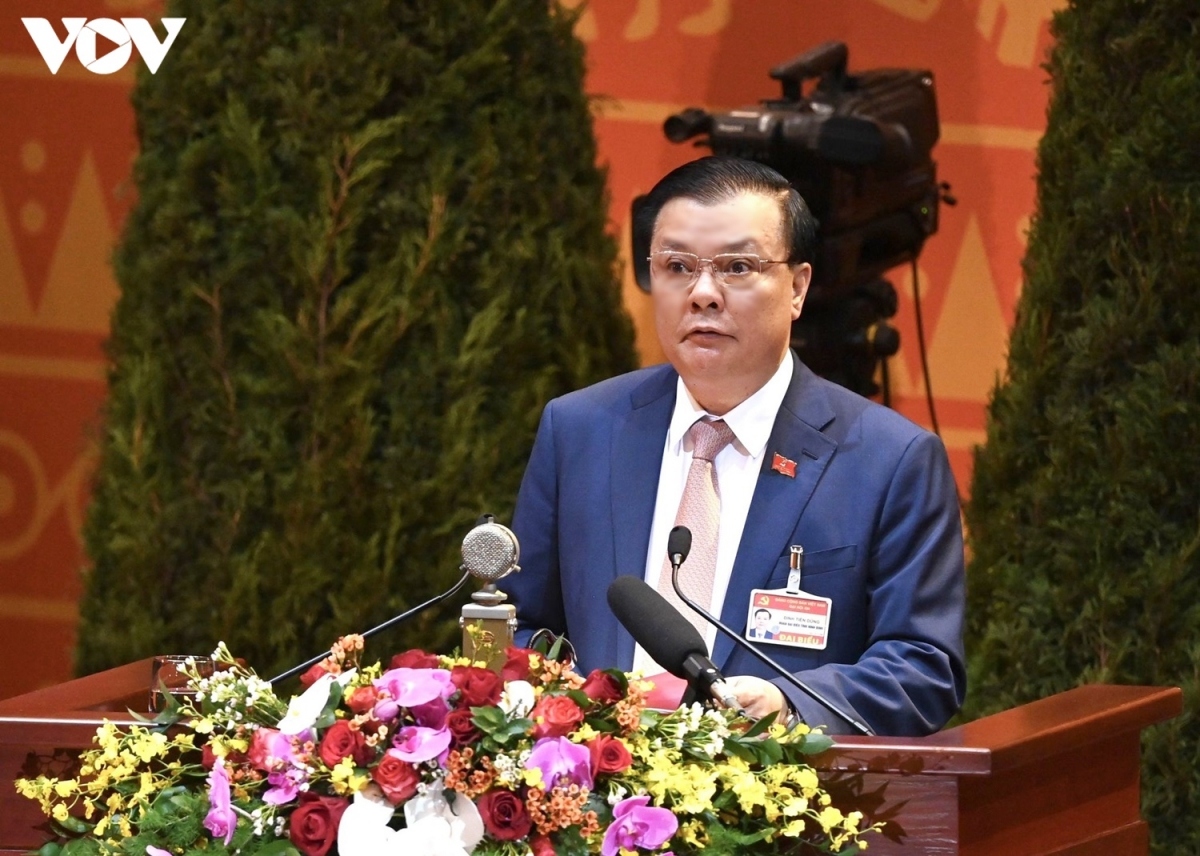Strict controls placed on overspending and public debt over next five years
VOV.VN - The budget revenue structure has shifted towards a more sustainable model to meet the development and integration of the national economy, following goals set to raise the proportion of domestic revenue to 82% for 2016- 2020 and 85.5% by 2020, and reduce the proportion of revenue from import-export activities and crude oil exports.

Finance Minister Dinh Tien Dung presented these figures in a report at a working session held on January 27 in Hanoi as part the ongoing 13th National Party Congress. The assessment stressed that building and revising the national finance structure in a modern direction is vital in order to meet the country's requirements for sustainable development moving forward.
According to Minister Dung, recent times has seen the finance sector look to fine-tuning institutions in line with the socialist-oriented market mechanism, thereby promoting the Doi Moi (Renewal) process, economic restructuring, as well as international integration. There have also been efforts made to restructure the State budget and public debt, while also strengthening discipline in order to effectively make use of all available resources.
With regard to the State budget revenue, Minister Dung said that the finance sector has built a collection of reasonable budget policies whilst improving the business investment environment and strictly controlling sources of revenue. The sector has strived to ramp up administrative procedure reforms, coupled with modernising revenue management work and strengthening inspection and check-ups.
The total state budget revenue for the 2016 to 2020 period still exceeded the set target, accounting for over 25% of GDP, the Finance Minister said.
In terms of the finance sector’s key tasks in the coming period, Minister Dung stated that the sector will continue to help the Politburo, the Secretariat, the National Assembly (NA), and the Government to improve policies.
The sector will also develop a modern revenue system which is consistent with the level of development, integration, and international practices as a means of creating a transparent, modern, and convenient business investment environment. This can be done to meet the needs of socio-economic development, national defence, and security moving forward.
Furthermore, the finance sector will aim to enhance budget management, conduct a five-year financial plan, a five-year public loan-repayment plan, and a five-year public investment plan in a synchronous and effective manner.
The Finance Minister also underlined the need for the sector to strictly control the budget deficit and public debt, thereby ensuring that major balances of the economy, macro-economic stability, and a safe and sustainable national financial system serve to improve the national credit rating.
In relation to the restructuring and increase of the operational efficiency of State-owned enterprises, the finance sector will make every effort to complete the reorganisation of State-owned enterprises (SMEs) in line with the market mechanism. This will be done in order to allow local SMEs to compete both regionally and globally by 2025.
"In the context of difficulties, challenges and advantages, the finance sector, with its great determination, pledges to continue to promote the tradition of solidarity, creativity, striving to achieve and exceed the State’s budget-finance targets, while ensuring national financial security and safety in an effort to successfully implement socio-economic development goals as set out in the Resolution of the 13th National Party Congress,” Minister Dung emphasized.

